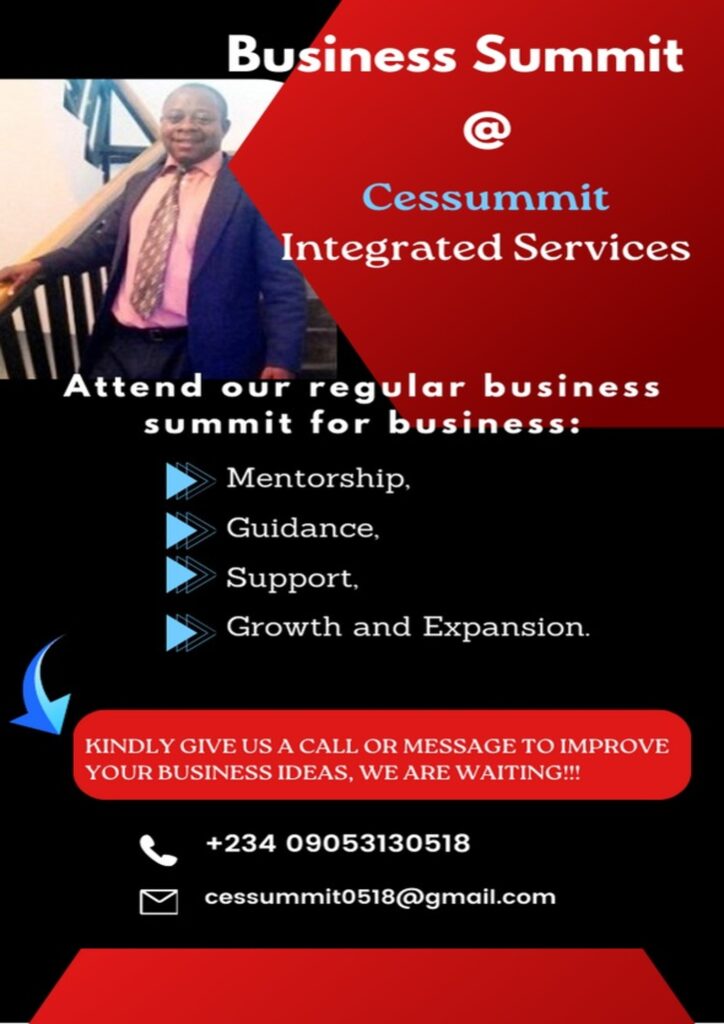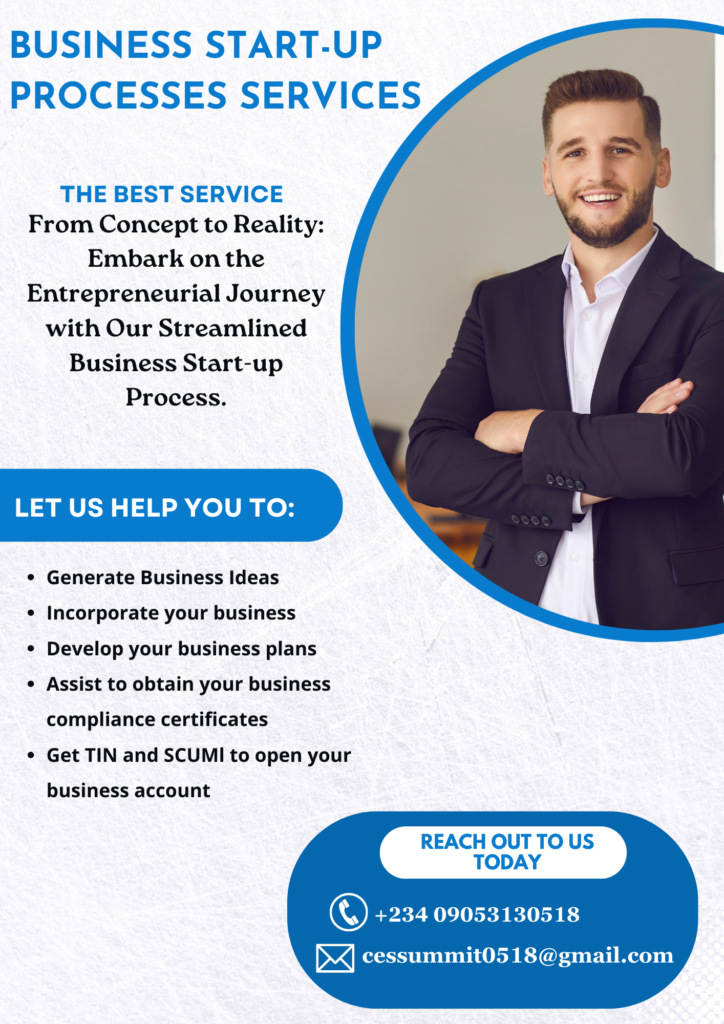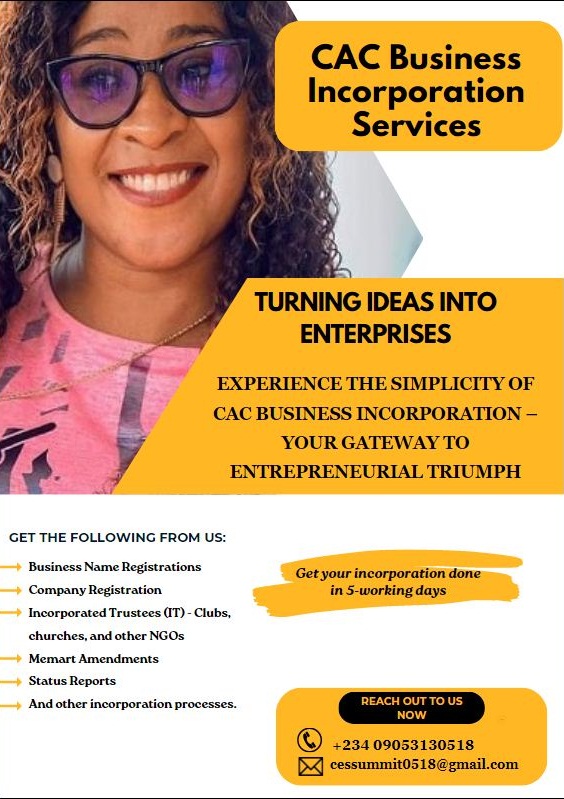How Business Start-ups Handle Their Beginning
Contents
How Business Start-ups Handle Their Beginning
These are steps to starting a small business. It’s actually a template on how to start a business from scratch. A start-up is commonly defined as a company/business typically in the early stages of its development. Research shows that these entrepreneurial ventures are typically started by 1-3 founders. These focus on capitalizing upon a perceived progressing market demand by developing a viable product, service, or platform. So it’s the stage of business idea generation and market testing. CESSUMMIT brings you How Business Start-ups Handle Their Beginning.
As a matter of fact, it’s also at this stage that entrepreneurs typically begin seeking funding from accelerators, angels investors etc. This is because their previous funding is typically provided by the founders, friends, and family, individual angels and occasionally accelerators.
How Business Start-ups Handle Their Beginning
In addition, there are also challenges start-up face at this stage. Such challenges must be overcome before the business stands. They include:
- Money – Business Funding, As Stated Above.
- Neglecting Marketing/Sales – Low Turnover
- Lack of Planning – No Targets
- Finding the Right People – Getting the Right Management Team is a Big Challenge
- Time Management – start-ups require efficient time management right from onset.
- Weak Cofounders – Unwillingness to Push Yourself beyond the Comfort Zone.
- Scaling Up – growth must be measurable based on business data generated.
In our Complete Entrepreneurship Summit ( CESSUMMIT) these challenges are brought to fur and trashed to enable you do your business well. So, do your best to attend the next summit.
In continuation, therefore, start-ups need to invest time and money into research. Market research helps determine the demand for a product or service.
As a matter of fact, a start-up requires a comprehensive business plan outlining mission statement, future visions, and goals as well as management and marketing strategies. This we will do for you too at a minimal cost.
How Business Start-ups Handle Their Beginning
We want you to go on reasoning with us. This is to make you stand firm as a start-up. Now, consider the following special considerations:
Business Location – Every business desires a particular location. For instance, some businesses localize to enjoy economies of scale from other big outfits.
Therefore, in the digital world, should your business be conducted online, in an office/home office or store? The nature of the business takes care of this.
Legal Structure – You must try to legalize your business. In fact, we will help you register your business with C.A.C. So, you must consider what legal structure best fits your entity. A sole proprietorship, Partnerships, or a limited liability company. An NGO for that matter is also a legal entity structure.
Funding – Venture Capitalist is a group of professional investors that specialize in funding start-ups. You can also make arrangement for credit facilities through suppliers, commercial banks, micro finance banks, etc.
If you are still with us, Start-ups must watch the following:
- Focus only on building and not on the customers. “Life’s too short to build something nobody wants. “- Ash Maurya. Therefore, your one and only goal should be to solve a meaningful problem FOR OTHER PEOPLE. This is crucial, because 42% of start-ups fail because they were not designed to solve a market need. So, they failed because they didn’t put others first. Do not think that because you have a brilliant idea, customers would be attracted. You have to know what makes your solution valuable for others.
- Lack of focus – “Lack of direction, not lack of time, is the problem. Therefore, if you find yourself doing one of following, please, STOP.
STOP:
- Recruiting a board of advisors that are yielding nothing.
- Doing partnerships without proof of extra revenue
- Spending time on PR and social media before knowing you’ve got the right product for the right customer
- Going to conferences that will not generate more revenue
In fact, these are some of the silent killers of the potential of your start-up. Basically, the only two things you need to focus on when you’re in start-up phase is: Users and Product. In fact, the only way to stay on track as a start-up is to develop the product and talk to users. You just don’t have time to get caught up in other things.
3. Being a One-Person Team – Remember, “Individuals don’t build great companies, teams do.”-Mark Suster. Paul Graham, one of the founders of Y Combinator and one of the most successful entrepreneurs, opines that, there are three essentials things to create a good start-up. For him these are:
- Engage Good people
- Make something customers actually want
- Spend as little money as possible
Our advice to each (would-be) founder is this: find AT LEAST one person from a different discipline to join you. Because if you’re with good people from the start, making something your customers actually want becomes 100X easier.
The long hours become way more bearable while you can pull each other through the lows and celebrate the highs. So if you want to build a successful start-up, don’t be a one-person team.
4. Premature scaling
“Premature scaling is putting the cart before the proverbial horse. The more a company grows, the further away from profitability it becomes.” -Michael A. Jackson
This looks ticklish. This is because it seems you’re doing everything right. In fact, you’re scaling, you’re hiring, you’re funded, and you’re growing – what’s more? But, premature scaling basically means too much, too soon.
What we mean is that there are still more to be done before valuing yourself so high. We understand that one of your main goal is to not be a start-up anymore. But that means, you have gotten a good product for a good market. And that you know how you can consistently acquire new customers for less money than the revenue they bring in. But are your there now?

How Business Start-ups Handle Their Beginning
Notwithstanding, you’re not ready to scale up when:
- You don’t know the lifetime value of your customers (price repeated purchase) and your cost to acquire that user.
- Your business model isn’t repeating – that means you’re not yet acquiring customers in a similar way.
- You’re spending more time working in the business than on the business.
The solution comes down to a couple of stages you must pass through with different focus.
Problem – solution fit – This is the first stage. In fact, it’s all about figuring out who your primary customer is. What problems they want you to solve and how you’re going to monetize on this customer. This then means you; find a problem that is big enough to solve, for enough people and where they will pay you to solve their problems in whatever way.
Product-market fit – In the second phase you have to create an in-demand product that services a large enough market for your start-up to grow.
Channel fit – This third phase is about creating and using channels that will enable you lower acquisition costs and but increasing revenue so you can reach profit.
Yea! The advice is if you want to build a successful start-up, don’t scale up when you’re not ready to.
Read Also:
In CESSUMMIT, our mentorship training programs take care of all of these. In fact, the business plan we develop for you evolves out of these. Call 09053130518 during working hours or email [email protected] for further information and assignments.






